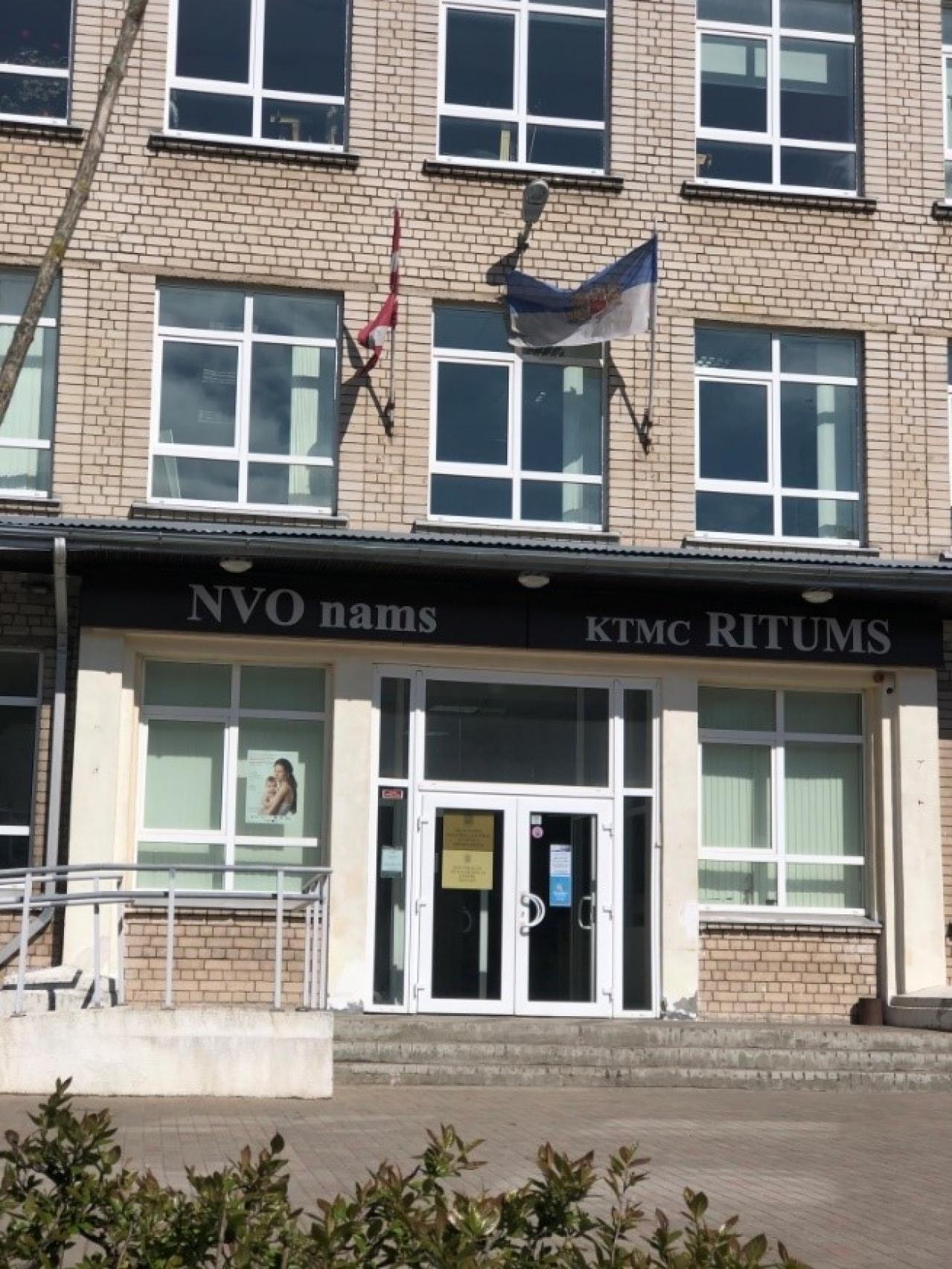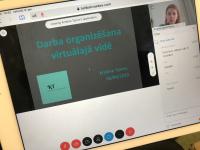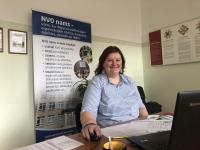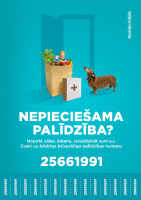
Although during the Covid-19 crisis the door of Riga NGO House is closed to visitors, its activities have not stopped – close and active cooperation and communication between the NGO House and NGOs continues.
Similarly to a large part of institutions and organisations in Riga, the situation caused by Covid-19 has made also the NGO House change its forms of activities. Although, since mid-March, NGO House is unusually silent because no face-to-face services are provided, public events are not held and NGOs cannot use the premises, the NGO House continues its support measures for NGOs, adjusting to the new circumstances and hearing out the NGOs’ needs in this period. The NGO House continues to be a point of support, contact and education for residents who are actively involved in the NGO sector.
NGO House – point of education

As before, every week distance seminars organised by the NGO House are held. Now, however, they are held online, already 4 seminars have taken place, testing various platforms and means of communication. The main range of issues on the agenda of almost every seminar is – how NGOs can continue their lives in the remote environment? The seminars that offered to NGOs’ representatives the possibility to familiarise themselves with various tools for organising work and private life in the digital environment as well as advice on how to organise remote sittings, meetings, which digital platforms were more convenient for small groups and which – for larger groups, which were offering the option of chat, etc. aroused great interest. NGOs’ representatives were also interested in how to keep accounting, what the instructions by the state institutions during this period of crisis were. A topic of similar importance, examined during a seminar, pertained to the psycho-emotional state – how to cope with stress at present, how to manage stress in a situation of crisis and which stress-reduction methods to use. NGOs’ representatives watch and listen to the online seminars of the NGO House and engage in active discussions. An interesting fact – when registration for participation in a seminar on how to organise work in a virtual environment was opened, the available places were filled in within a couple of hours.
NGOs representatives are invited to give proposals on the currently most relevant topics for seminars, and they are using this opportunity actively. Therefore the next proposed topics are: “Using the client management systems in the work of NGOs” and “What is a podcast?”.
NGO House – a point of contact

Currently, the NGO House is not physically accessible to visitors; however, it ensures the exchange of information between NGOs, their initiatives during this period. NGOs are invited to share good ideas and initiatives for surviving this time of crisis, what the organisations already have launched, in adjusting to the situation, or to tell about the activities they have joined.
Riga NGO House is preparing for a large-scale online event in May. Occasionally, it is worth looking beyond the borders of Riga, taking a look at what is happening elsewhere in Latvia. An experience sharing and networking online conference will be held to explore and get to know how other local governments in Latvia and NGOs find a common language. At the conference, representatives of NGOs and local governments from Riga and one of the 5 regions of Latvia – Latgale – will share their experience in collaborating with associations and foundations, in promoting the development of their activities and reinforcing their capacity. Whereas the representatives of associations from Latgale will present their best practice examples – achievements and events that they are proud of. The relevant matters in connection with Covid-19 situation will be a special point of focus – the challenges of Latgale’s local governments and NGOs during this period.
NGO House – point of support

We encourage NGOs to continue their activities, to work remotely, we help, in a certain sense, “to maintain the pulse” and find ways how to go on. NGOs receive advice on how to organise their teams during the period of remote work, how to ascertain that the work gets done. We invite NGOs to share their reflections on the common and different features of face-to-face and online work. We urge NGOs to be active because this, indeed, is the time to show the strength of NGOs, by working in the field of charity, helping members of organisations, neighbours or neighbourhood residents.
We believe that this extraordinary situation will bring new, valuable lessons to NGOs. To learn a new way of work, to invest resources in experience and emotions that drive development, to attract new members to the organisations, to be humane and be able to resolve complicated tasks, to use digital solutions that allow making the processes of NGOs’ work more effective. Covid-19 crisis will end but NGOs and the NGO House are here to stay!
Voluntary movement #stayhome in Latvia

NGO House is closely cooperating with NGOs providing support at this difficult time. During the first days of the Covid-19 crisis, the voluntary movement “Stay Home” was born in Latvia, and within a short period of time it reached many responsive hearts. The voluntary movement #stayhome is a self-organising group, which, by using technologies – an application with tasks and Hotline phone number, provides help to those most in need of it.
Hotline number 25661991 operates on a 24/7 basis and accepts requests in Latvian, Russian and English. The received requests are entered into the mobile application, which is linked to a geographical location, the application allows better supervision of the task performance, decreases the time needed for coordinating volunteers because the volunteers themselves apply for performing the tasks.
Anyone can become a volunteer, by registering on www.paliec-majas.lv. It can be just for one minor task per week. Currently, almost 500 volunteers have become involved throughout Latvia. The number is quite high, taking into account that this initiative was launched only a month ago.
At present, the work is focused on providing help in a crisis – delivering groceries and other purchases, taking pets for a walk, thus allowing people to stay at home. Although high-risk groups – seniors, people with health conditions – are the priority, it is important to provide support to anyone – an exhausted health worker or social worker, a single parent or a person living alone and self-isolating.
More extensive information about the voluntary movement #stayhome in English:
https://paliec-majas.lv/en/

